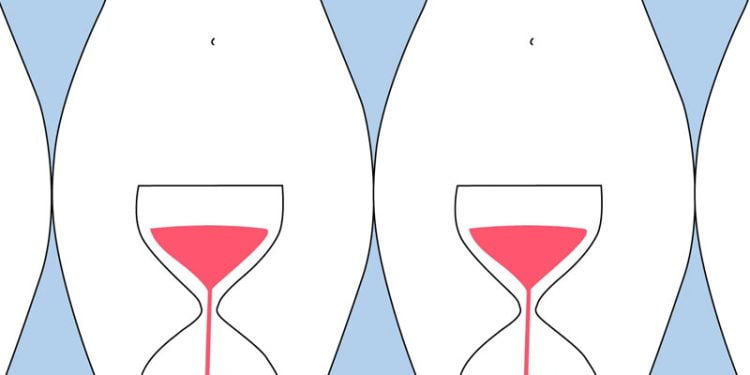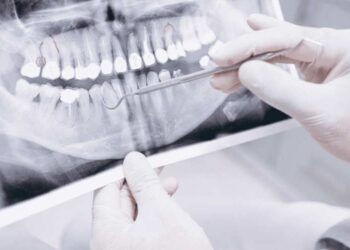If you don’t have a known problem with your menstrual cycle, it should begin 21 to 35 days after your previous period
The length of your period varies. If you don’t get your period on the 29th day of your usual 28-day cycle, it’s been officially labelled late. Similarly, if your normal cycle is 32 days and you do not menstruate by day 33, this would be considered late for you.
Regardless of which scenario you believe is late, there’s no need to be concerned. Menses from month to month might vary owing to a variety of factors.
You can consider your late period a missed menstrual cycle after 6 weeks without bleeding.
Periods can be delayed for a variety of reasons, from basic lifestyle modifications to long-term health problems. Here’s a list of ten possible culprits.
1. You’re anxious
The stress-response mechanism in your body is based on the hypothalamus, which is located at the base of your brain. While you no longer need to flee from predators, your body remains hardwired to act as if you were.
2. You’ve either gained or lost weight.
Extreme weight changes, for example, can cause your periods to come late or stop altogether. Extreme increases or decreases in body fat, for example, might induce a hormonal imbalance that causes your period to arrive later or cease entirely.
Calorie restriction also disrupts the part of your brain that “speaks” to your endocrine system and gives instructions for the production of reproductive hormones. Hormones can become misaligned when this communication channel is shut down.
3. You’ve increased the intensity of your exercising
Missed periods can also be caused by a rigorous exercise program. This is most common in those who train for many hours each day. It occurs as a result of whether inadvertently or not, you are burning more calories than you consume.
When you exercise too much, your body doesn’t have enough energy to keep all of its systems operating. Hormone production may be influenced by more intense workouts.
4. You’ve Got PCOS
Polycystic ovary syndrome (PCOS) is a condition characterized by imbalances in reproductive hormones. Many people with PCOS are unable to ovulate regularly.
5. You Are using hormonal birth control
The pill is popular among women who menstruate since it ensures that their periods are regular. However, it can sometimes have the opposite impact, especially during the first few months of usage.
It can take a few months for your cycle to return to normal when you stop taking the pill. When your body regains its usual hormone levels, you may go several months without menstruating.
6. You Are in perimenopause
The period before your menopause is known as perimenopause. It commonly begins in your mid-to-late 40s. Perimenopause may continue for several years after the menstrual cycle stops completely.
7. You Are in early menopause
When your ovaries cease to function before you reach 40, this is known as premature ovarian insufficiency (POI).
8. You have an issue with your thyroid gland.
Thyroid disease occurs when your thyroid gland, which is shaped like a butterfly and located in the back of your neck, produces insufficient amounts of certain hormones. Hypothyroidism and hyperthyroidism are two frequent types of thyroid illness.
9. You have a chronic disease.
Menstrual irregularities are sometimes linked with persistent health issues, particularly celiac disease and diabetes.
10. You may be carrying a child.
If you’re thinking about being pregnant and your cycles are regular, it’s time to get a pregnancy test.
Don’t let your period get in the way of your important occasions. There are period delay treatments that can help you regulate your cycle and keep things on track.









